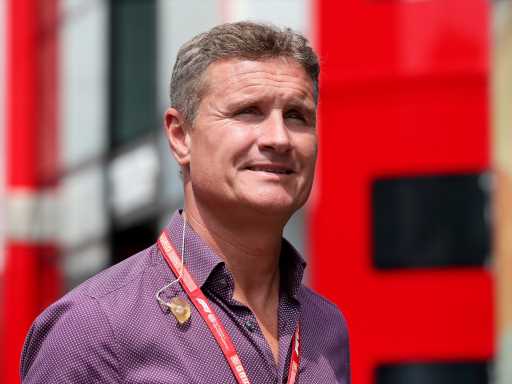David Coulthard has questioned Formula 1’s sliding scale R&D rule, saying he is not in favour of any rule that “handicaps success”.
Next season Formula 1 will introduce a sliding scale rule that limits windtunnel time for the most successful teams while giving those at the back of the grid extra hours.
It is hoped that the new regulation will go some way towards levelling the playing field.
Former F1 driver Coulthard isn’t a fan.
Speaking during an Autosport podcast, he said: “The basis, I think, of Formula 1, has always been a defined set of regulations of which everyone then has the opportunity to interpret and to deploy whatever assets they have at their disposal.
“But I am a little bit concerned about anything that handicaps success because Formula 1, for me, again, the name of the door doesn’t guarantee success.
“If it did, the biggest name in Formula 1 is Ferrari, and [so] they should be winning every few years. They should win a championship on that basis, and they haven’t.
“Now if that’s with a budget cap, fine, I still think that if you look at Formula 2, there are still better teams for whatever reason than other teams, historically.
“They’ve all got the same cars, essentially. And some might have half a million more or half a million less, which is not an insignificant amount of money, but it’s clearly what defines success in other forms of racing – [it] isn’t designing your chassis and your own engine and all of those other things.
“But Formula 1 has always been the pinnacle, and you had to have the intellectual property of the majority of the car.”
The Scot also weighed in on standard parts, saying that while he is open to it to a certain degree, Formula 1 must leave space for innovation.
“The wetted surfaces, you know, the aero surfaces and engines and things – but it be should be open to development in my mind because that’s what aids development,” he said.
“If we make it too IndyCar-like, then IndyCar doesn’t have the same level of global audience because it’s not the space race.
“Everyone got super excited about SpaceX because it’s still magical – developing something that sends humans into the great unknown, it’s not unknown anymore, but into outer space.
“So I think there has to be that little bit of magic, that little bit of ‘my goodness, how do they do that in Formula 1?’
“It can’t just be standard budget, standard cars. I know it’s not, the rules aren’t as extreme as that, but if we get if we become too standard, the brand equity of Formula 1 will carry that for a period of time.
“But the minute there’s something faster, then Formula 1 will lose its appeal because the public want to see the fastest form of closed-circuit racing.
“Formula 1 has to remain the fastest form of closed-circuit racing and it has to be by some margin.”
Source: Read Full Article
